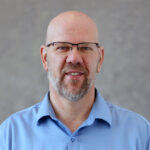Agenda
October 16-17, 2024 · Santa Clara, CA
- All Topics
- Connected Health
- Innovation
- Interventional Technologies
- Keynote
- Manufacturing & Materials
- Neurotechnology
- Structural Heart
- Surgical Robotics
- Women's Health
October 15, 2024
October 16, 2024
October 17, 2024
- 9:00 AM - 7:00 PM
Exhibitor Registration Open
Exhibitor Move in from 9:00 AM - 5:00 PMWhereMain Lobby - 5:00 PM - 7:00 PM
Welcome Reception
Pre-registration is required.WhereMission City Ballroom B1
 9:30 AM - 10:15 AM
9:30 AM - 10:15 AMKeynote Interview: How Baxter is Revolutionizing Care Delivery Through Connectivity
By Heather Knight EVP and Group President, Medical Products and Therapies (MPT) | BaxterBaxter, a global medtech leader, offers a portfolio of products that are ubiquitous in healthcare. In this keynote, Heather Knight, EVP and Group President of the company’s Medical Products and Therapies segment, explores how Baxter is enabling a more connected and digitally driven future for customers and patients in settings that span the home, clinics, hospitals and operating rooms.Connected HealthKeynoteWhereMCB B3/B5- 10:00 AM - 5:00 PM
Exhibit Hall Opens
- 10:15 AM - 10:45 AM
Networking Break
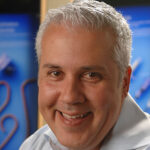 10:45 AM - 11:30 AM
10:45 AM - 11:30 AMUnderstanding the Latest Innovations in Bioresorbable Technology to Address Unmet Patient Needs
By Richard Rapoza PhD Divisional Vice President, R&D, Vascular | AbbottKnown in the cardiovascular space as the “father of bioresorbable technology”, Richard Rapoza will discuss the latest innovations in bioresorbable technology. He will also share insights and lessons learned from the multi-year development and approval process for a first-of-its-kind system for treating an unmet need in the peripheral anatomy. By attending this session, you will: • Better understand the latest innovations in bioresorbable technology. • Learn about the benefits of bioresorbable stents for addressing unmet patient needs, especially in the peripheral anatomy. • Gain insights gleaned from a multi-year development and approval process for a first-of-its-kind medical device system.Interventional TechnologiesWhereMCB M1
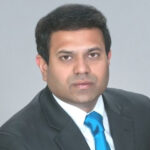
 10:45 AM - 11:30 AM
10:45 AM - 11:30 AMAdvancing Innovation and Fortifying Supply Chain
By Jim Hammerand Managing Editor | Medical Design & Outsourcing, A.K. Karan Sr. Director of Digital Transformation, Integrated Supply Chain | Baxter International, Tamra Robinson Senior Director, PMO/Strategy - Medical Products & Therapies | Baxter- 10:45 AM - 11:30 AM
How Edwards Lifesciences Sees the Future of Structural Heart
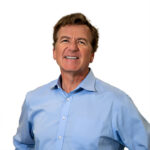 10:45 AM - 11:30 AM
10:45 AM - 11:30 AMVirtual Incision: The future of soft tissue robotics is miniature -- and that's huge
By John Murphy CEO | Virtual IncisionIt’s no secret that technology reaches the masses when it is miniaturized to become smaller and more scalable. Could the same finally be true for soft tissue surgical robotics? In this session, John Murphy will share how Virtual Incision plans to leverage their MIRA Surgical System to bring RAS to any patient, anytime, anywhere.Surgical RoboticsWhereMCB B2/B4
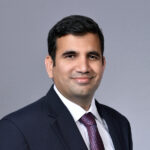 11:45 AM - 12:30 PM
11:45 AM - 12:30 PMHow to Take Control of Your Product Remediation Efforts and Keep Your Product on the Market
By Eric Hill Senior Consultant | IPM, Chait Sathe Director | IPMUpcoming regulatory changes and quality issues—PFAS, EtO sterilization, QMSR changes, LDTs, and cybersecurity requirements—will require large-scale remediation of your on-market products. In this session, you will learn effective strategies to manage and streamline your remediation program and to navigate complex business decisions that span multiple functions to ensure cohesive planning and successful compliance outcomes.Manufacturing & MaterialsWhereMCB M1- 11:45 AM - 12:30 PM
Industry Session: AcuityMD
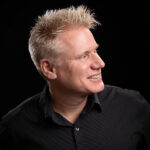 11:45 AM - 12:30 PM
11:45 AM - 12:30 PMCracking the Code: Insider Cybersecurity Insights for Medical Device Premarket Success
By Christian Espinosa Founder and CEO | Blue Goat CyberAs the medical device industry becomes increasingly connected, robust cybersecurity is no longer optional—it's critical for market approval and patient safety. This session unveils the insider knowledge gained from Blue Goat Cyber's extensive work with hundreds of premarket submissions. Attendees will explore the most pressing cybersecurity challenges medical device manufacturers face and walk away with actionable strategies to strengthen their devices' security posture. From navigating complex regulatory landscapes to managing vulnerabilities and supply chain risks, this presentation offers a clear roadmap to mastering cybersecurity for successful market entry.
Sponsored By
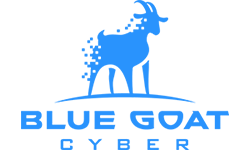 Connected HealthWhereMCB M2
Connected HealthWhereMCB M2- Defining success can be variable for medical device companies, but once understood, and for all innovations, there are waypoints and markers where companies must consider and find best practices and protect their onward pathways. This panel will highlight some of the key points where medical device pioneers and even those established in the industry must understand the lay of the land and how to move forward including when to consult outside experts and on what topics. Our diverse panel of speakers include industry experts and attorneys who have first hand experience with intellectual property (when and how to protect), regulatory, legal (including understanding the relationship between process and potential liability risks) and commercial/financial. This panel will also highlight this using examples about how artificial intelligence and other aspects of the industry have changed and continue to change at warp speed.InnovationWhereMCB B2/B4
- 12:30 PM - 1:45 PM
Lunch and Networking Break
 1:45 PM - 2:30 PM
1:45 PM - 2:30 PMLeveraging Existing Technology to Develop a First-of-its-Kind Heart Device
By Anna (Ania) Snell, PhD R&D Director, Structural Heart | AbbottWhen the Abbott MitraClip system was created, the world saw what was possible in repairing leaky mitral valves (mitral regurgitation). Building upon the proven success of MitraClip, a team of researchers, scientists and doctors specifically designed TriClip to treat the tricuspid valve's complex anatomy on the other side of the heart. Hear how harnessing the experience and technology from one solution led to developing a device for a condition that can severely impact quality of life -- but for which limited treatment options existed.Manufacturing & MaterialsStructural HeartWhereMCB M3- 1:45 PM - 2:30 PM
Moon Surgical: How Efficiency and Accessibility is Helping Maestro Stand Out
In this discussion, Moon Surgical's CTO David Noonan will explain how the surgical robotic start-up is helping to redefine the surgical robotics market by building a robot that helps hospitals and ASCs overcome crippling staff shortages while also collecting critical data.Surgical RoboticsWhereMCB B2/B4  1:45 PM - 2:30 PM
1:45 PM - 2:30 PMBiolinq: Shaping a New Era in Biosensing: Multi-analyte Platform on a Silicon Chip
By Rich Yang CEO | BiolinqBiolinq's groundbreaking multi-analyte platform on a silicon chip is revolutionizing metabolic health monitoring. With microsensors embedded just below the skin, this innovative technology offers unparalleled simplicity and continuous small molecule biosensing, paving the way for healthier living and a new era in precision healthcare.Connected HealthWhereMCB M2- Doug Goertzen, a co-founder of Kardium, will share the story of the short, 17- year adventure of starting and building a company focused on developing and commercializing one of the most advanced therapeutic medical devices ever - the Globe Pulsed Field ablation system designed to treat atrial fibrillation. Caution: The story may contain examples of extreme naiveté and hubris mixed with stubbornness.Interventional TechnologiesWhereMCB M1
 2:45 PM - 3:30 PM
2:45 PM - 3:30 PMFrom Devices to Care: SW-defined, AI-enabled, and Robotic
By Mostafa Toloui, PhD MedTech Product Management Lead | NVIDIA- 3:30 PM - 4:00 PM
Networking Break
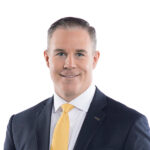 4:00 PM - 4:45 PM
4:00 PM - 4:45 PMKeynote Interview: How Stryker Continues Innovating Toward Safer Care, Better Outcomes
By Andy Pierce Group President, MedSurg and Neurotechnology | StrykerAndy Pierce, Stryker’s group president of MedSurg and Neurotechnology, will share how Stryker harnesses innovative technologies to collaborate with its customers to make healthcare better.Interventional TechnologiesKeynoteNeurotechnologyWhereMCB B3/B5- 5:00 PM
Exhibit Hall Closes
- 5:00 PM - 7:00 PM
DeviceTalks Networking Reception
Pre-registration is required.WhereMCB B1
 9:00 AM - 10:00 AM
9:00 AM - 10:00 AMKeynote Interview: Knowing the difference between risk and uncertainty can dramatically accelerate medtech innovation
By Adam Elsesser President, Chairman and Chief Executive Officer | PenumbraBeing able to embrace new ideas or approaches that create uncertainty may mean the difference between industry disruption or stagnation. More importantly, knowing the difference between risk and uncertainty may mean the difference between bringing meaningful therapies to patients or letting a need remain unmet.
In this keynote interview, Adam Elsesser, CEO of Penumbra, discusses the key factors to driving the medical device industry forward:
- Rethink the structure of in research & development, by allowing teams the freedom to work through ideas unencumbered by stringent project schedules
- Break free from rigid/established hierarchy to empower contributions from wider teams and employees as it could lead to revolutionary product ideas
- Value incremental innovation and iteration to optimize your products and expand their impactInterventional TechnologiesKeynoteNeurotechnologyWhereMCB B3/B5- 10:00 AM
Exhibit Hall Open
- 10:00 AM - 10:30 AM
Networking Break
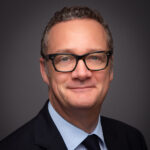
 10:30 AM - 11:15 AM
10:30 AM - 11:15 AMShockWave Medical: What's Next for Intravascular Lithtotripsy
By Nick West, MD Associate Chief Medical Officer | Shockwave Medical, Sean Whooley Assistant Editor | Life Sciences, WTWH MediaIn classic first-mover fashion, Shockwave Medical created and now dominates the IVL marketplace. Now the company is helping to complete Johnson & Johnson Medtech's interventional portfolio. Shockwave Chief Medical Officer Dr. Nicholas West, an interventional cardiologist, will explain how the procedure helps treat coronary artery disease (CAD) and peripheral artery disease (PAD) patients and where it may see therapeutic opportunities in the future.Interventional TechnologiesWhereMCB M1
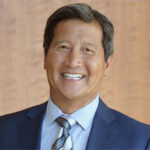 10:30 AM - 11:15 AM
10:30 AM - 11:15 AMHow Surgical Robotics Next Phase - Telesurgery - Will Happen
By Cynthia Perazzo, MBA CEO and Co-Founder | Sovato Health, Yulun Wang, PhD Executive Chairman, Co-Founder | Sovato HealthIn the first phase, surgical robot tools sharpened surgeon precision. Next, data is measuring and improving performance. But for surgical robotics to fulfill its overriding mission - access to top quality care - surgeons must be able to perform procedures remotely over long-distances. Sovato executives will explain how the company is building a system upon which that can happenConnected HealthSurgical RoboticsWhereMCB M2
 10:30 AM - 11:15 AM
10:30 AM - 11:15 AMBoston Scientific: Transforming the Diagnosis and Treatment of Chronic Low Back Pain with the Intracept Procedure
By Ray Baker Vice President and Chief Medical Officer, Neuromodulation | Boston Scientific, Mary Haily Vice President, Health Economics and Reimbursement | Boston ScientificAmong the more critical applications for neurotech is bringing relief to people who are literally suffering from chronic pain. In this discussion, leaders from Boston Scientific will break down the power behind the the Intracept Procedure, which uses targeted RF energy to ablate the basivertebral nerve. The technique was developed by Relievant, which secured FDA approval to treat vertebrogenic pain. Boston Scientific acquired the company last year.NeurotechnologyWhereMCB M3 10:30 AM - 11:15 AM
10:30 AM - 11:15 AMTailored Tech: Rethinking Device Design for Diverse Anatomies
By Jennifer Jones-McMeans, PhD Divisional Vice President of Global Clinical Affairs | Abbott VascularEngage with senior leaders from top OEMs and essential MedTech stakeholders from the FDA, engineering, business leadership, clinical practice, and clinical affairs. The discussion will focus on the necessity of moving beyond uniform device design in favor of approaches that consider anatomical and physiological differences to ensure medical devices are as varied as the patients they serve. Focusing on conditions that impact all patient populations, this panel will challenge the status quo by addressing what we’re doing right and what we still need to do to ensure equity in design and treatment, ultimately improving outcomes across all patient groups.Structural HeartWomen's HealthWhereMCB B2/B4- 12:45 PM - 1:30 PM
Lunch
 12:45 PM - 1:30 PM
12:45 PM - 1:30 PMWomen in MedTech Luncheon
By Cecilia Soriano President, Infusion Therapies and Technologies | Baxter InternationalJoin MedTech industry peers for an hour of networking, engagement, and mentorship (and food and drink, of course). Find a mentor, reach out to a new contact, reconnect, and help foster a movement that needs more female leadership at all levels.
Featuring a fireside chat with Cecilia Soriano, the global president of Baxter’s Infusion Therapies and Technologies division. Thank you to our Sponsors!
Ticket required; Pre-registration is required and spots are limitedWhereMission City Ballroom B1 1:30 PM - 2:15 PM
1:30 PM - 2:15 PMMedtronic: The power of persistence: Unlocking innovation in product development
By Jason Weidman SVP and President, Coronary & Renal Denervation | MedtronicA view into Medtronic’s journey to regulatory approval for the Symplicity Spyral™ renal denervation system. Jason Weidman will share more about the power of persistence with Medtronic's renal denervation journey. Although the path to FDA approval was long and sometimes challenging, it was well worth the wait - especially for those patients who suffer from uncontrolled high blood pressure.Interventional TechnologiesWhereMCB B2/B4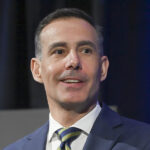 1:30 PM - 2:15 PM
1:30 PM - 2:15 PMOptimizing patient care through connected, integrated, technology-driven approaches
By Kevin Coady North America Business Leader for Disease Management Solutions & Digital Pathology | Philips HealthcarePatients with suspected prostate cancer often face a journey marked by uncertainty and the risk of inaccurate risk profiling. Effective management of prostate cancer necessitates seamless integration between radiology, urology, and pathology. This panel session explores how the latest Med Tech in hardware and software can bridge departmental silos to enhance the patient journey from initial assessment to diagnosis and treatment planning. This session will demonstrate how advanced solutions address these challenges by providing a comprehensive, connected care framework.
Participants will learn about the pivotal role of high-resolution MR imaging and advanced quantification tools in radiology that facilitate accurate lesion assessment and efficient biopsy sampling. We will delve into how streamlined workflows between radiology and urology improve tumor targeting and biopsy precision, while digital pathology integrates seamlessly for faster and more accurate diagnoses, and emphasizing how digital solutions increase biopsy accuracy.
Key learning objectives include:
• Understanding the technological advancements that connect radiology, urology, and pathology.
• Exploring how these technologies reduce patient stress and improve diagnostic accuracy.
• Evaluating the impact of AI and digital pathology on workflow efficiency and diagnostic turnaround time. By the end of the session, attendees will gain insights into optimizing patient care through integrated, technology-driven approaches.Connected HealthWhereMCB M2
 1:30 PM - 2:15 PM
1:30 PM - 2:15 PMHow BCI, Robotics Are Helping Stroke Patients Recover
By Kirsten Carroll CEO | Kandu Health, Leo Petrossian CEO | NeurolutionsAn exoskeleton equipped with a brain-computer interface is helping stroke patients increase functional independence and accelerate motor recovery. In this discussion, representatives from Neurolutions - the creator of IpsiHand - and Kandu Health - tech-enabled healthcare services company created to help people who have had strokes - will give details on the technology and their partnership. Earlier this year, Neurolutions received a new code from CMS, setting a new benchmark for thought-activated controlled devices.NeurotechnologyWhereMCB M3
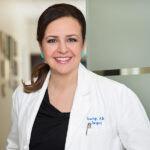 1:30 PM - 2:15 PM
1:30 PM - 2:15 PMFrom Concept to Care: Innovating for Women in Medical Device Development
By Asha Parekh, PhD co-founder and CEO | Front Line Medical Technologies, Shirin Towfigh, MD Chief Executive Officer | Hexagon Health and President | Beverly Hills Hernia CenterJoin us for a cross-disciplinary discussion with stakeholders from the FDA, engineering, business leadership, clinical practice, and clinical affairs to redefine how medical devices are designed and regulated with a focus on women’s health needs. This panel will challenge the status quo by addressing the need for more targeted clinical data and regulatory support to ensure equity in design and treatment. Special emphasis will be placed on the clinician’s perspective, highlighting the real-world impact of device design on surgical procedures and patient care, such as the ergonomic challenges posed by surgical instruments designed for larger hands. The panel aims to create a comprehensive view of medical device pathways—from diagnosis and treatment to post-market surveillance, driven by informed research and clinical trials.Women's HealthWhereMCB B2/B4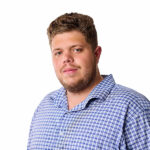 2:30 PM - 3:15 PM
2:30 PM - 3:15 PMBiomedical Engineering at the Extreme Limits: Endiatx Panel and Q&A
By Quentin Caron Chief Engineer | EndiatxThis session will delve into the intricate process of miniaturization that powers Endiatx' revolutionary motorized capsule endoscope, PillBot, offering unprecedented insights into the challenges our engineers have undergone developing micro-robotics technology, from initial concept to final product. Attendees will better understand the technical and creative efforts that drive our mission to transform medical diagnostics.
This engineering panel will consist of experts in the fields of electrical engineering, computer engineering, software engineering, mechanical engineering, manufacturing engineering, and advanced artificial intelligence (AI). Modern biomedical engineering of tomorrow must include all of these disciplines and more if we are to bring advanced diagnostics to patients worldwide and revolutionize healthcare delivery.Surgical RoboticsWhereMCB M3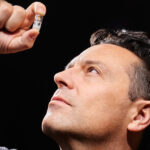 3:30 PM - 4:30 PM
3:30 PM - 4:30 PMKeynote Interview: PillBot: World's first Virtual Endoscope
By Torrey Smith CEO and Co-Founder | EndiatxPillBot™, the AI-enabled motorized pill camera that swims in the water-filled stomach, will be presented by Endiatx Co-founder and CEO Torrey Smith. PillBot™, the first device in the exciting new category of micro-robotics in the human body, will conclude FDA trials in 2025. Equipped with AI for telemedicine-enabled movement and diagnostics, PillBot™ will dramatically reduce barriers to GI care and prevention.KeynoteSurgical RoboticsWhereTheater- 4:30 PM - 5:00 PM
DeviceTalks Podcast Live Recording
Resources
Subscribe to MassDevice
Advertise with us
For registration or logistic questions, contact events@wtwhmedia.com
Advertise with us
For registration or logistic questions, contact events@wtwhmedia.com
Sponsorship Opportunities
Colleen Sepich
Events Sales Director
csepich@wtwhmedia.com
857-260-1360
Heather Herbert
Event Sales Manager
hherbert@wtwhmedia.com
512-760-0570
Copyright © 2024 WTWH Media, LLC. All Rights Reserved.


